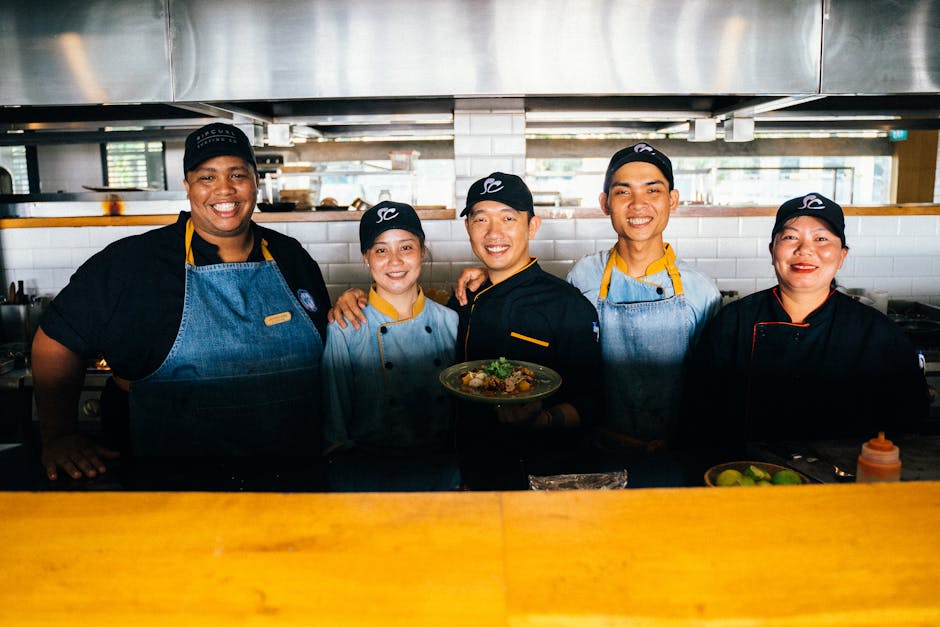Skilled South Asian Catering Workers
The Vital Role of South Asian Catering Experts in Saudi Arabia
South Asian catering professionals form the core of Saudi Arabia’s hospitality engine. Their expertise is not accidental; it is cultivated through rigorous training and deep cultural traditions of hospitality. Consequently, they are highly sought after for their ability to manage large-scale operations, from hotel banquets to private events. Additionally, their versatility in adapting to both international and local Saudi cuisines makes them invaluable. This skilled workforce ensures the seamless execution of events that are central to Saudi business and culture.
Economic Impact of Skilled Catering Professionals
The economic contribution of these workers is substantial. They support Saudi Arabia’s Vision 2030 by bolstering the tourism and hospitality sectors, key pillars for economic diversification. Moreover, their work facilitates major international conferences and the annual Hajj pilgrimage, which hosts millions. This directly generates revenue and enhances the kingdom’s global reputation. Their remittances also contribute significantly to their home countries’ economies, creating a vital financial bridge between South Asia and the Middle East.
For instance, the General Authority for Statistics provides data on labor force contributions across sectors.
Specialized Skills of South Asian Culinary Staff
These workers possess a diverse and specialized skill set. Their proficiency ranges from traditional cooking techniques to modern gastronomy. Key skills include:
- Mastery in diverse cuisines (Arabic, Indian, Pakistani, Bangladeshi, International)
- Large-scale food preparation and banquet management
- Strict adherence to international hygiene and safety standards
- Exceptional customer service and etiquette
This combination of hard and soft skills ensures they meet the high standards demanded by Saudi employers and clients.
Navigating the Saudi Employment Landscape
Understanding the legal and contractual framework is essential for these workers. The Kafala (sponsorship) system has undergone significant reforms, improving worker rights and mobility. However, challenges remain. It is crucial for workers to have clear employment contracts outlining their rights, salary, and benefits. Organizations like Saudi’s Ministry of Human Resources provide guidelines to protect both employers and employees. Therefore, proper documentation and awareness of labor laws are fundamental for a successful tenure.
Training and Development for Catering Careers
Continuous professional development is key to success. Many vocational institutes in South Asia specifically train individuals for overseas catering careers. These programs focus on:
- Culinary arts and food technology
- Language training (Arabic and English)
- Cultural sensitivity and Saudi customs
- Safety and sanitation certifications
This targeted training ensures that workers are not just skilled chefs or servers but are also well-prepared to integrate into the Saudi work environment.
Research from institutions like the Harvard University often highlights the importance of vocational training for migrant labor success.
Cultural Adaptation for South Asian Workers in Saudi Arabia
Adapting to a new culture is a significant aspect of the expatriate experience. South Asian workers often find common ground through shared religious practices. However, understanding subtle cultural and social norms is vital for professional and personal harmony. Employers play a critical role in facilitating this transition through orientation programs. Ultimately, successful cultural adaptation leads to better job satisfaction and performance, benefiting both the worker and the employer.
The Future of South Asian Catering Talent in Saudi Arabia
The future demand for skilled South Asian catering workers remains strong. As Saudi Arabia continues to expand its tourism and entertainment sectors under Vision 2030, the need for hospitality expertise will grow. Subsequently, this will create opportunities for higher specialization and career advancement. Moreover, ongoing labor reforms aim to create a more attractive and fair environment for expatriate workers. This evolving landscape promises a more sustainable and mutually beneficial relationship between Saudi Arabia and its skilled South Asian workforce.
Staying updated on these trends is easier with the right Resources.
Finding and Recruiting Top Catering Talent
For businesses, recruiting the right talent is paramount. This involves partnering with reputable recruitment agencies that understand the specific needs of the catering industry. Importantly, the process should be ethical and transparent, ensuring workers are matched with the right opportunities. Companies must also focus on employee retention by offering competitive packages, good working conditions, and clear paths for growth. For expert assistance in navigating this complex process, consider reaching out to Contact Us for tailored solutions.
The International Organization for Migration offers insights on ethical recruitment practices globally.
Frequently Asked Questions
What are the most common nationalities of skilled South Asian catering workers in Saudi Arabia?
The majority hail from India, Pakistan, Bangladesh, and Sri Lanka. These countries have a long history of supplying skilled culinary and hospitality staff to the Gulf region.
What visas are required for South Asian catering workers?
Workers require an Iqama (residence permit) sponsored by their Saudi employer. This is processed after obtaining a work visa, which mandates a confirmed job offer and often requires specific vocational certifications.
How have labor reforms impacted skilled South Asian catering workers?
Recent reforms have improved conditions significantly. Changes include allowing job mobility without employer consent after a contract ends, setting minimum wage standards, and strengthening contract enforcement, offering workers greater protection and flexibility.
What is the typical career progression for a catering worker?
Many start in entry-level positions like commis chef or server. With experience, they can advance to supervisory roles such as sous chef, head chef, banquet manager, or even food and beverage director, especially within large hotel chains.
Why are South Asian workers preferred in the Saudi catering sector?
They are renowned for their culinary expertise, strong work ethic, adaptability, and proficiency in English. Additionally, their familiarity with the region’s culture and their technical training make them a preferred choice for employers.
Conclusion
In conclusion, skilled South Asian catering workers in Saudi Arabia are an indispensable asset. They deliver exceptional service that drives the kingdom’s growing hospitality industry. Their specialized skills, cultural adaptability, and economic impact underscore their critical role. Finally, as Saudi Arabia continues its transformative journey, the partnership with this talented workforce will only deepen. For businesses looking to leverage this talent pool, expert guidance is key. Book an Appointment with our HR specialists today to develop your optimal recruitment strategy.




